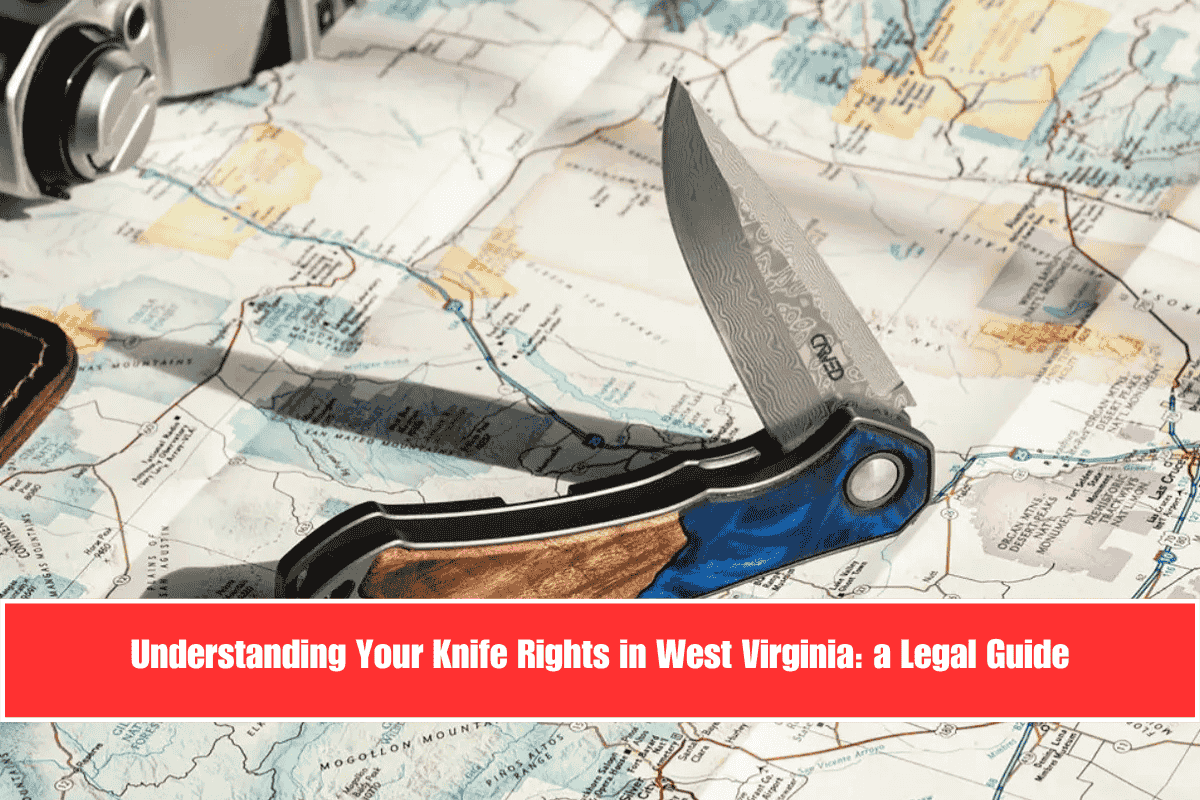West Virginia has some of the most permissive knife laws in the United States, but there are important details and restrictions every resident and visitor should know.
What Knives Are Legal to Own?
- All Types Legal: It is legal to own any type of knife in West Virginia, including switchblades, balisongs (butterfly knives), dirks, daggers, stilettos, Bowie knives, and even ballistic knives.
- No Prohibited Types: There are currently no state laws banning the ownership or possession of any specific knife type.
Carrying Knives: Open and Concealed Carry
Open Carry
- Generally Permitted: You may openly carry any type of knife in West Virginia, with very few restrictions, except in certain prohibited locations (see below).
Concealed Carry
- 21 and Older: Anyone 21 or older who is not otherwise prohibited (such as by felony conviction) may carry any knife concealed without a permit.
- 18–20 Years Old: Individuals aged 18–20 may generally carry manual folding knives and fixed-blade knives with a blade length of 3.5 inches or less concealed. Larger or more dangerous knives may only be carried openly, unless for hunting, fishing, or as a tool.
- Under 18: Minors are prohibited from possessing deadly weapons, including most knives, unless married or emancipated.
- Intent Matters: Carrying a knife with the intent to harm is illegal, regardless of age or knife type.
Location-Based Restrictions
- Schools: All knives, including pocket knives of any size, are strictly prohibited on K–12 school property, school buses, and at school-sponsored events. Knives locked in a parked vehicle are generally excluded, as long as they are not visible and you remain in the vehicle during pick-up or drop-off.
- Other Restricted Areas: Typical restrictions apply in courthouses, federal buildings, and certain government facilities.
Statewide Preemption
- Uniform Laws: As of May 31, 2020, West Virginia has statewide preemption, meaning local governments cannot enact knife laws stricter than state law. This ensures consistency across the state and eliminates the patchwork of local ordinances.
Penalties for Violations
- Carrying Illegally: Violating knife carry laws (such as carrying a prohibited knife concealed underage or bringing a knife onto school property) can result in misdemeanor or felony charges, fines, and possible jail time.
- Intent to Harm: Using or carrying a knife with the intent to harm can lead to more severe criminal charges.
Table: Knife Laws in West Virginia
| Category | Rule/Restriction |
|---|---|
| Ownership | All knife types legal |
| Open Carry | Legal for all knife types |
| Concealed Carry (21+) | Legal for all knife types |
| Concealed Carry (18–20) | Legal for manual/fixed knives ≤3.5″ blade; larger knives open carry only |
| Minors (<18) | Generally prohibited unless married/emancipated |
| Schools | All knives banned on property, buses, and events |
| State Preemption | Yes (no stricter local laws) |
| Restricted Locations | Courthouses, federal buildings, some government facilities |
Key Takeaways
- You can own and carry nearly any knife in West Virginia, openly or concealed, if you are 21 or older and not otherwise prohibited.
- Those 18–20 should limit concealed carry to smaller knives or carry larger knives openly.
- All knives are banned on school property and in certain government buildings.
- State law overrides local ordinances, so rules are consistent statewide.
Always use knives responsibly and stay updated on any changes to state law.
Sources
[1] https://www.akti.org/state-knife-laws/west-virginia/
[2] https://knifeup.com/west-virginia-knife-laws/
[3] https://ago.wv.gov/gunreciprocity/Documents/On%20The%20Mark.pdf
[4] https://nobliecustomknives.com/us-knife-laws/west-virginia-knife-laws/
[5] https://www.wvlegislature.gov/Bill_Status/bills_text.cfm?billdoc=hb2425+intr.htm&yr=2025&sesstype=RS&i=2425
















Leave a Reply